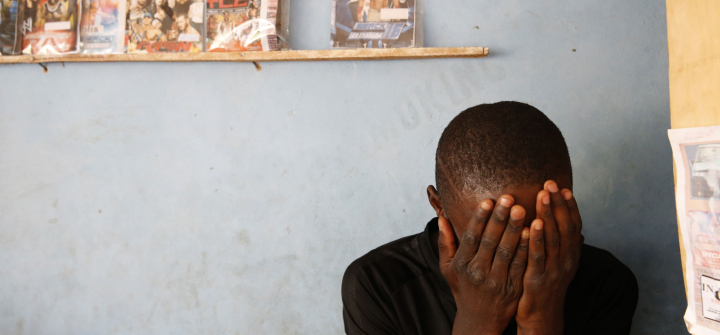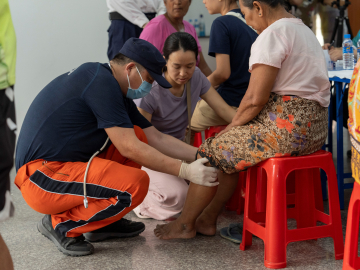Global Mental Health NOW
Imagine explaining to a senior official in government—or any large health organization—that they could prevent and treat a whole category of diseases that cause more disability than any other, that kills significant numbers of people, and prevents people from seeking help for other diseases—and that they could mostly do this through local nonprofessional workers, without medications and equipment.
Now picture that person’s eyes glaze over with disinterest. That’s what it’s like being a mental health advocate.
Our entire society, including our leaders, has a blind spot when it comes to mental health. The stigma suffered by people with mental illness extends to the whole field, making it a low-priority issue always superseded by other public health issues and resistant to data-based arguments—even among those who consider themselves data driven. What are those data?
A third of all global disability is due to mental and neurological diseases. When we think of disability, we think of someone with a missing limb or other mobility problem—but a more representative image would be someone with their heads in their hands.
- More than 700,000 people die each year from suicide—more than the number who die from HIV or malaria.
- Up to 1 in 5 postpartum deaths is due to suicide.
- Poor mental health is associated with shorter life spans of a decade or more—and poor outcomes for HIV, TB, and other infectious diseases.
Poverty, domestic and child violence, poor nutrition, and reduced participation in health treatment and prevention programming are also highly associated with mental health struggles. And yet around the world, less than 3% of national health budgets support mental health. Of this tiny amount, one-half to two-thirds goes to psychiatric hospitals focused primarily not on treatment, but isolation—essentially warehousing people with mental illness for years or decades.
This stigma, this lack of attention, is sustained by several powerful and universal myths that stymy progress, including:
- Mental illness is due to an inherent weakness in the person or their genes.
- People with mental illness cannot hold responsible jobs, form positive relationships, or otherwise contribute to society.
- Mental health problems are uncommon in LMIC countries and local people don’t see it as a priority.
- Interventions are expensive, interminable, and not very effective; suicide is difficult to prevent.
In every global region, there is extensive data and experience to counter each of these myths—especially the myth that we can’t help most people.
All over the world local people with no professional or mental health background have been trained to provide psychotherapy in their own communities, and to do it well. Our experience suggests that they can treat 80% of the people in most communities who need help. Their main tools are not medication or equipment—just their skills and a phone or internet connection that links them to supervisors, other counselors, and, ideally, a mental health professional to help with the remaining 20%. These workers can also identify and treat suicidality, which is detectable, if you are looking for it, and survivable with short-term observation. Once the crisis is over, only 10% of people who are prevented from ending their own life go on to die from suicide.
Notice the little that we are asking for: That local people—paraprofessionals—be trained and supported to provide services in their communities. And yet even this small investment is rejected by governments, service organizations, and foreign assistance programs as “too much.”
Back in the 1990s, I worked in the maternal and child health field, and was part of a global mobilization to address the crisis of 600,000 women dying each year of obstetric complications. We mobilized training, medications, and equipment—and now the global mortality is closer to 300,000, despite the rise in global population. We could make similar reductions in suicide and disability associated with mental illness over the next decade or sooner, by making mental health services not just a core component of universal health care—but a leading element.
But now, when asking for much less to do much more, we are told there is no money. Given the impact of mental health, I think it is time to recognize that our 20th-century priorities are outdated in the face of new information. People with mental illness have been ignored and poorly served for too long.
Paul Bolton, MB, BS, MPH, MSc, is a senior scientist in the Department of Mental Health at the Johns Hopkins University Bloomberg School of Public Health. He has worked in global mental health for more than 25 years and in 25 countries, developing and researching mental health needs, and developing, implementing, and evaluating mental health services.
Join the 50,000+ subscribers in 170+ countries who rely on Global Health NOW summaries and exclusive articles for the latest public health news. Sign up for our free weekday newsletter, and please share the link with friends and colleagues.
A young man hiding his face in his hands. BSIP/Universal Images Group via Getty





